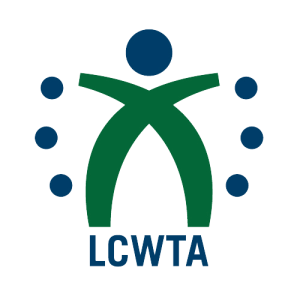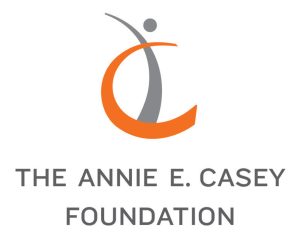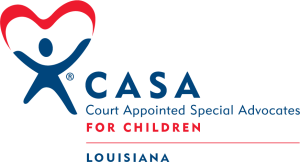Calendar

CWLA is pleased to present the three-part virtual training series that features the publication Working with Traumatized Children – A Handbook for Healing. Now in its third edition, Working with Traumatized Children has been updated to include new strategies and approaches for caregivers and others responsible for meeting the needs of children who are vulnerable.
Participants will gain a strengthened capacity to:
- Define what trauma is and differentiate it from stress
- Provide examples of trauma symptoms in children and adults
- Describe how trauma can impact children’s brains
- Advocate for the provision of safe environments when working with children and adults who have been affected by trauma
- Provide examples of how systems can be traumatizing or retraumatize people
- Explain the importance of understanding the vagus nerve when working with families and children who have been affected by trauma
- Express why self-reflective practices and supervision are important when working with this population
Training registrants will receive an electronic copy of Working with Traumatized Children, Companion Workbook which supplements the virtual training sessions. Training registrants are also eligible to receive a 30% discount on the purchase of hard copies of Working with Traumatized Children – A Handbook for Healing, Third Edition and Working with Traumatized Children, Companion Workbook. Use promo code WWTC-30 in CWLA’s Bookstore.

CWLA is pleased to present the three-part virtual training series that features the publication Working with Traumatized Children – A Handbook for Healing. Now in its third edition, Working with Traumatized Children has been updated to include new strategies and approaches for caregivers and others responsible for meeting the needs of children who are vulnerable.
Participants will gain a strengthened capacity to:
- Define what trauma is and differentiate it from stress
- Provide examples of trauma symptoms in children and adults
- Describe how trauma can impact children’s brains
- Advocate for the provision of safe environments when working with children and adults who have been affected by trauma
- Provide examples of how systems can be traumatizing or retraumatize people
- Explain the importance of understanding the vagus nerve when working with families and children who have been affected by trauma
- Express why self-reflective practices and supervision are important when working with this population
Training registrants will receive an electronic copy of Working with Traumatized Children, Companion Workbook which supplements the virtual training sessions. Training registrants are also eligible to receive a 30% discount on the purchase of hard copies of Working with Traumatized Children – A Handbook for Healing, Third Edition and Working with Traumatized Children, Companion Workbook. Use promo code WWTC-30 in CWLA’s Bookstore.

What is race? What is racism? How do these concepts influence people’s perceptions of themselves and others? How has racism impacted the implementation of policies and procedures across our socio-economic systems?
This three-part training session explores these and other questions to understand the ways racism impacts socio-economic systems. Participants will learn about the origins of racism and engage in discussions about its four levels: internalized (within individuals), interpersonal (between individuals), institutional (within institutions), and structural (across institutions and society). They will review examples of each and evaluate how the practices of specific institutions – child welfare, education and criminal justice, to name a few – perpetuate disparate outcomes for impacted populations. Participants will also go on a historical journey from slavery and segregation to the violence, mass incarceration and voter suppression, to understand how internalized, interpersonal and institutional racism combine to create power structures that advantage some, while disadvantaging all others.
Through this historical perspective, participants will be challenged to evaluate the racist policies and practices that persist in their fields of work, and to start discussions about dismantling systems of oppression so that equity, inclusion and justice can prevail.

Parenting is challenging, particularly when you are parenting a child from a hard place. TBRI ® Empowering Principles will provide an in-depth look at ways to empower your children by meeting their unique physical needs and creating an environment in which they can succeed. This session includes information on sensory processing and practical tools and skills to help children regulate their emotions and behaviors. This multi-disciplinary training is designed to give caregivers, volunteers, and professionals who serve children and families the knowledge and practical skills they need to bring hope and healing.

Youth advocates, service providers and community leaders: Are you frustrated by the negative narratives about young people? Thriving Youth: Messaging Strategies to Encourage a Brighter Future for Young People, an upcoming webinar hosted by the Annie E. Casey Foundation, offers guidance on how to leverage data and messaging to compose positive, asset-framed narratives about young people. Recent research commissioned by the Foundation shows that the public remains inclined to support youth development, including many preventative interventions. Data indicate that positive and warm parent-youth relationships help children grow up healthy and with skills to succeed in school. Outside of parents, schools, mentors and youth programs that offer young people constructive activities like sports, arts and employment opportunities lead to reduced risks and better outcomes. Young people can thrive if adults and communities invest in them and their futures.
Executive directors and staff of youth-serving organizations, particularly those supporting the young people with the most barriers to success, are struggling to overcome damaging stereotypes about youth. They encounter inflammatory and frequently exaggerated coverage of crimes committed by young people — often reinforced by media. On their own, factual data about crime trends are not helping to correct misperceptions surrounding youth and their realities. A concerted storytelling and persuasion effort in the media and within communities is required to neutralize harmful assumptions and influence policies and practices.
This one-hour session will offer people in youth-serving organizations — especially those with public-facing roles — data-driven strategies to shift harmful narratives, including:
- understanding public perception about young people’s challenges and potential;
- learning asset-based frames and messages about what helps youth thrive, including the opportunities, guidance and connections to positive adults that local youth-serving organizations provide; and
- discovering how to bolster positive storytelling about young people to counter pervasive negative narratives.

Promoting Positive Change in Communities by Confronting Poverty
Louisiana CASA is excited to host our third webinar series. This series is brought to you in partnership with the Louisiana Children’s Trust Fund so we are required to ask participants certain demographic questions during registration. Once you register, an email will be sent to you that includes the link to join the webinar. We hope to see you there!
Promoting Family Economic Well-Being Beyond Poverty
Child poverty is rooted in decades-long trends of economic hardships among families across the nation. From the grassroots movement of United Ways, measures of financial hardships have emerged through the measurements of ALICE (Asset Limited, Income Constrained, Employed). Join us in discovering the impacts of United Ways’ data collection and the ALICE movement that promotes well-being for families beyond poverty.

Supervisors play a pivotal role in shaping a resilient and thriving workforce. Without the right tools and strategies, the demands of behavioral and community healthcare leadership can lead to burnout and high turnover, negatively impacting organizational success.
Join the Child Welfare League of America (CWLA) and Relias on March 5 at 2 PM ET for an insightful webinar on how effective supervision can transform your organization. Learn actionable strategies and proven practices to empower supervisors, reduce burnout, and foster a more engaged and productive team.
Guided by CWLA’s 4 A’s framework, this webinar will focus on:
- Awareness: Recognizing the unique challenges supervisors face in their roles
- Acknowledgment: Viewing supervision as a space for growth and self-reflection
- Action: Implementing strategies to create a positive and collaborative work environment
- Accountability: Building shared responsibility to empower and support staff effectively

The program consists of nine 2 hour sessions. Applicants must register for the entire 9-week program. The training program will offer participating professionals the opportunity to acquire or enhance the competencies, skills and insights necessary to effectively work with children and families in the child welfare system. Please see course descriptions and course presenters below. All nine courses will be led by national experts in the field of child welfare and child maltreatment.
Event Details Coming Soon!
March 5th: Block Physical Abuse: Solutions presented by Stacie LeBlanc, JD, MEd, FAPSAC
March 12th: Baffling, Bizarre, Beyond Belief Child Abuse Cases presented by Debra Esernio-Jenssen, MD, FAAP & Barbara Knox, MD
Resources
(FRIDAY) March 21st: Bogus Physical Abuse: Mimics of Maltreatment presented by Michelle Greene, DO
Resources
March 26th: Brains: Abusive Head Trauma presented by Randell Alexander, MD, PhD
Resources
April 2nd: Burns: Pediatric Burns and Their Medical Mimics in Child Maltreatment presented by Lauren Burge, MD
Resources
April 9th: Bull: Medical Child Abuse: Detecting, Surviving and Healing from Unprecedented Bull presented by Rebecca Gill, MD, Jordyn Hope & Brian Fleming
April 16th: Bones/Fractures presented by Dr. Adrienne Atzemis
April 23rd: Brains and Backlash: Medical Diagnosis, Legal Controversies, and Prevention Strategies for Abusive Head Trauma presented by Vincent J. Palusci, MD, MS, FAAP, FAPSAC
Resources
April 30th: Bruises and other Boo-Boos: Skin Injury presented by Dr. Adrienne Atzemis

Parenting is challenging, particularly when you are parenting a child from a hard place. TBRI ® Empowering Principles will provide an in-depth look at ways to empower your children by meeting their unique physical needs and creating an environment in which they can succeed. This session includes information on sensory processing and practical tools and skills to help children regulate their emotions and behaviors. This multi-disciplinary training is designed to give caregivers, volunteers, and professionals who serve children and families the knowledge and practical skills they need to bring hope and healing.

